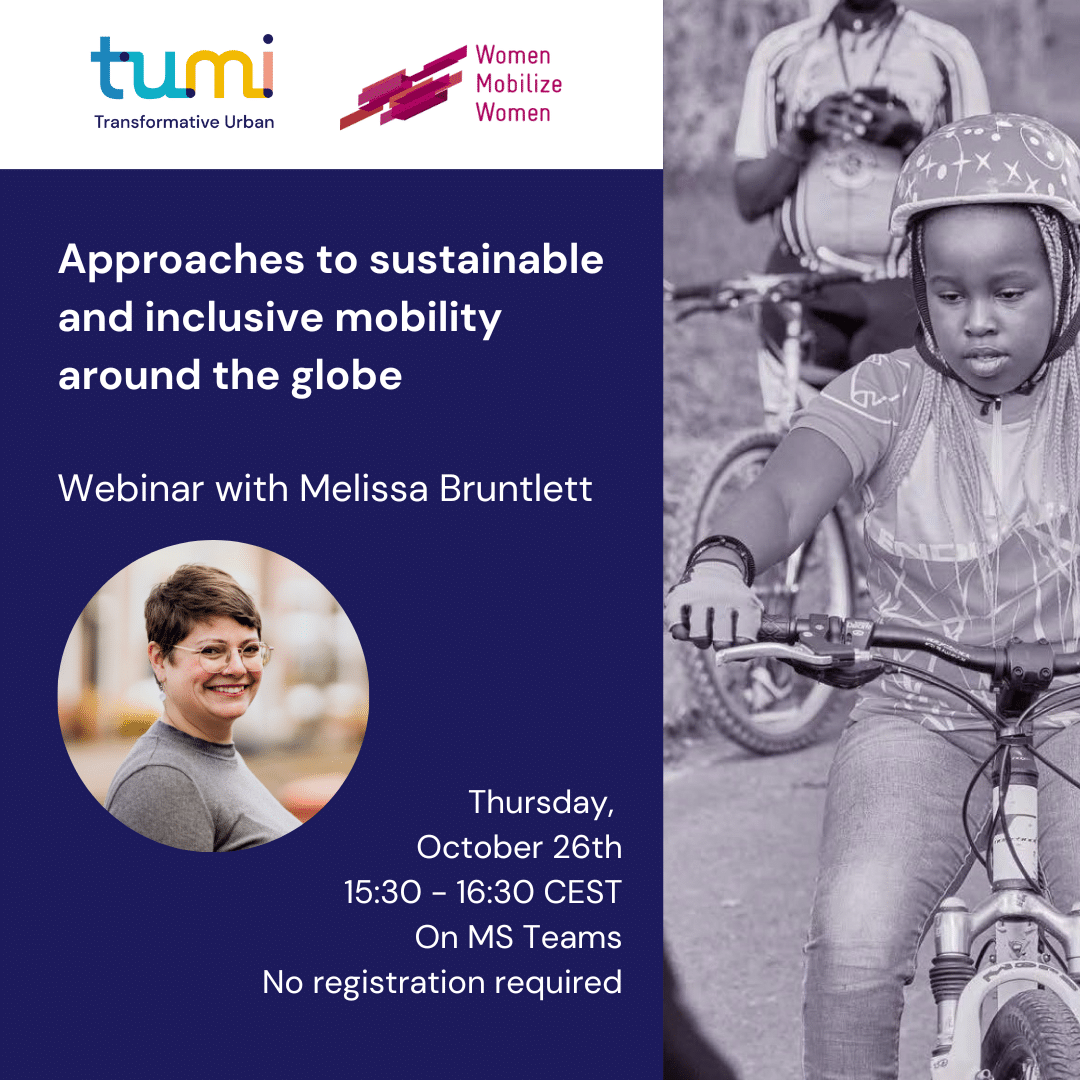26 Oct 2023
Approaches to sustainable & inclusive mobility around the globe

We invited international sustainable mobility advocate and author Melissa Bruntlett to join us for a discussion on how to make Sustainable and Equitable Mobility a reality. Linking Dutch approaches to examples from Colombia, Uganda and Kenya Melissa will show us what approaches can be taken to implement mobility services that ultimately lead to happier, healthier, more human-scale cities.
Join us via MS Teams – We are looking forward to meeting and discussing with you!
- 26th October 2023
- 15:30 – 16:30 CEST
- On MS Teams (no upfront registration required) 👉 https://rb.gy/ya3bz
About Melissa
Melissa Bruntlett is a Canadian author, living in The Netherlands and co-founder of Modacity, a creative agency fostering sustainable infrastructures in cities. She is a passionate advocate for forward-looking urban transformation. Inspired by the biking culture in the Netherlands, her husband and her published their first book Building the Cycling City in 2019, in which they address the challenges and successes of the Dutch as well as giving examples of North American cities that have followed similar paths. In their newest book Curbing Traffic: The Human Case for Fewer Cars in Our Lives, Melissa and Chris Bruntlett highlight the advantages of understanding cars as visiting, instead of owning, the roads. Besides personal experience, their writing is based on interviews with experts and locals in Delft, a Dutch city in the South. In her research, she addresses the challenges women face in transport and how these can be overcome. She believes that urban planning favoring people over private automobiles will create more inclusive and livelier for people of all walks of life. Along with Women Mobilize Women, Melissa Bruntlett developed and published The 15-Minute City: A Feminist Utopia? where she elaborates if the adoption of the 15-minute city intersecting with feminist approaches can help to ensure that no one is left behind by inclusive land-use and mobility planning.
Microsoft Teams Meeting Link